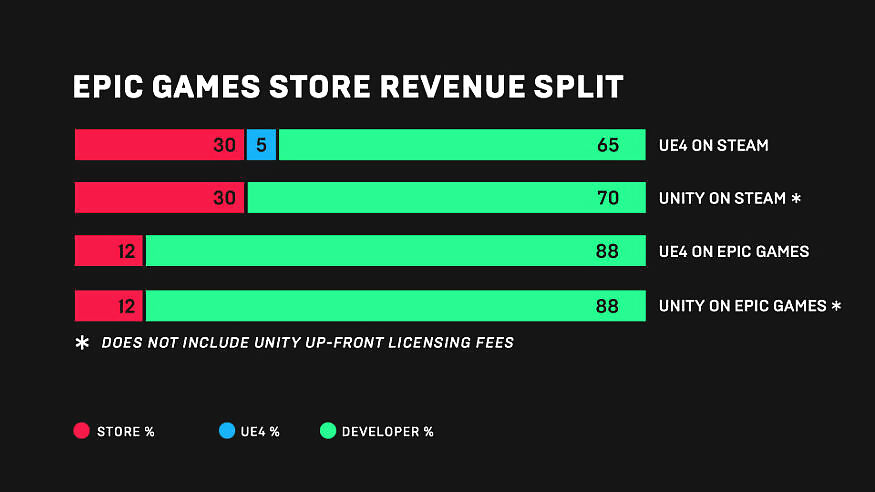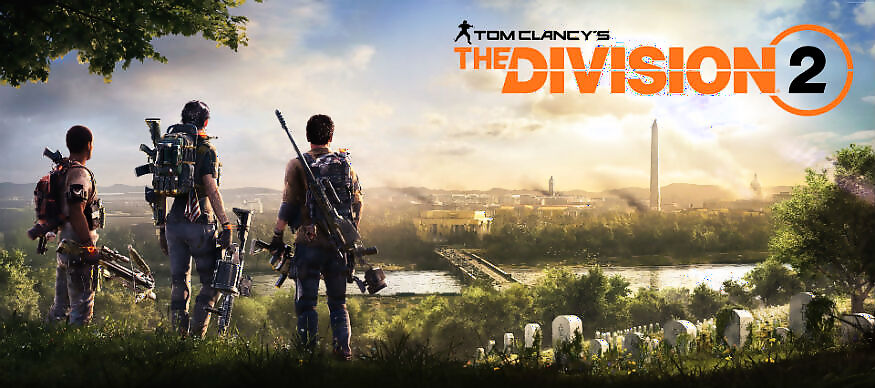
views
PC Gamers arguably have the best share of fortune when it comes to AAA game titles, and if one looked at the entire ecosystem, Valve’s Steam is at the epicentre of it. Over time, Steam has built a game library that exceeds over 30,000 titles, with epic exclusives, a vast list of AAA titles and endless hours of gameplay. In recent times, however, the makers of Fortnite have been quietly threatening to take on Steam. Epic Games, it is safe to say, has earned a fair bit of fortune with Fortnite, and even though the online battle royale game has faced a bit of flak for not-so-exciting updates in recent times, it still remains one of the most-played games in the world right now, taking all platforms into account.
To cash in on this jumpstart, and not restrict itself to the battle royale confines as Bluehole and Tencent may seemingly have done with Playerunknown’s Battlegrounds (PUBG), Epic Games came up with the Epic Games Store. Instead of only publishing in-house titles, Epic wants to become a distributor — the exact same model that Valve followed on its way to success. As with every new store, however, Epic’s first days saw a very empty store, with a select few titles that were attractive, but not real head turners. This has somewhat defined Epic’s overall expansion policy.
Slow and steady
To take on Steam, Epic Games has played it steady. The company has not jumped into acquisitions and exclusive deals. Instead, Epic’s first draw of blood against Steam was the developer revenue share, designed in a bid to attract more developers to its platform. As against Steam’s 70 percent developer revenue share, Epic offers 88 percent revenue share to developers that agree to publish and distribute games through its platform.

The move works both ways — while publishing on Steam would presumably bring in higher overall revenues to developers despite the lower revenue margin, Epic opened up its platform even for non-exclusive deals. With Fortnite earning Epic quite a bit of profitability and active users, the developer has a compelling, attractive user base to push its store out to, who in turn are bound to check it out at some point. This gives developers the ability to add to its revenues, even if the initial amounts to be earned from the Epic Games Store are not massive.
For Epic, drawing new, AA and AAA titles to its store meant increasing the gamer base that comes to its platform. With more games in tow, gamers are bound to head over to the Epic Store, and check out more games on its platform. For avid gamers, even Epic’s lesser-known titles would become worth trying out, which in turn increases Epic’s ability to earn more profits from less famous games than Fortnite. To make the deal sweeter for gamers, Epic was even willing to take a hit, and give out initial games for free. Right now, it employs a sales and distribution model where a new game is offered for free, every two weeks.
Fishing for exclusives
It is at this point that Epic started looking at exclusives. Earlier today, Epic struck a deal where it snatched the massively popular Rocket League from right underneath Steam’s noses. Psyonix hit gold with Rocket League just like Epic did with Fortnite — last September, the car-and-football game hit 50 million unique users of the game, and while it is not a game that takes on the likes of Assassin’s Creed and Call of Duty in popularity, it is still very, very popular.

Rocket League is not the only one — in fact, it is the latest in a list of exclusive titles signed by Epic Games so far. Among the three timed exclusives that Epic has picked up so far include Super Meat Boy Forever, The Walking Dead: The Final Season and Tom Clancy’s The Division 2, with the latter being the most popular of the lot. This speaks volumes about Epic’s patient but very clever strategy. Brute force will hardly be effective against a store such as Steam, which is overwhelmingly mighty in terms of what it offers to a PC gamer.
Epic, hence, has itself stated that while it will eventually open up its store and ecosystem to more gamers on PC and even on Android, the overall idea is to go steady. It is gradually picking up games that have a following beyond hardcore gamers, which even casual players love to enjoy. A look at its store right now reveals a whole bunch of popular titles — Borderlands 3, Metro Exodus, Darksiders III, Far Cry Primal, Tom Clancy’s Ghost Recon Wildlands, Unreal Tournament and What Remains of Edith Finch.
It is evident that the list of games on the platform are hand-curated. Each of these titles offer strong storylines (such as Edith Finch), unique gameplay (such as Rocket League) and even classic formats (such as Unreal Tournament). As the store grows, Epic will certainly grow in its acceptance of gaming titles on the platform. But, right now, it has taken the patient route of building an identity for its store, one which casual and hardcore gamers alike will remember, and make it a point to at least check once every month.
Watch out, Steam
Epic Games’ takeover of Psyonix is symbolic of its overall strategy. It is a popular game that is critically acclaimed, and with such a strategy, it is identifying itself as being capable of going beyond the masses — something it has already done with Fortnite. Going forward, a strategy of opening up to more platforms and games will do wonders, and instead of Epic courting the developers, it would soon be the other way round.
Steam may be the overwhelming powerhouse right now, but The Arkham Knight was neither built and nor played in a day.

















Comments
0 comment